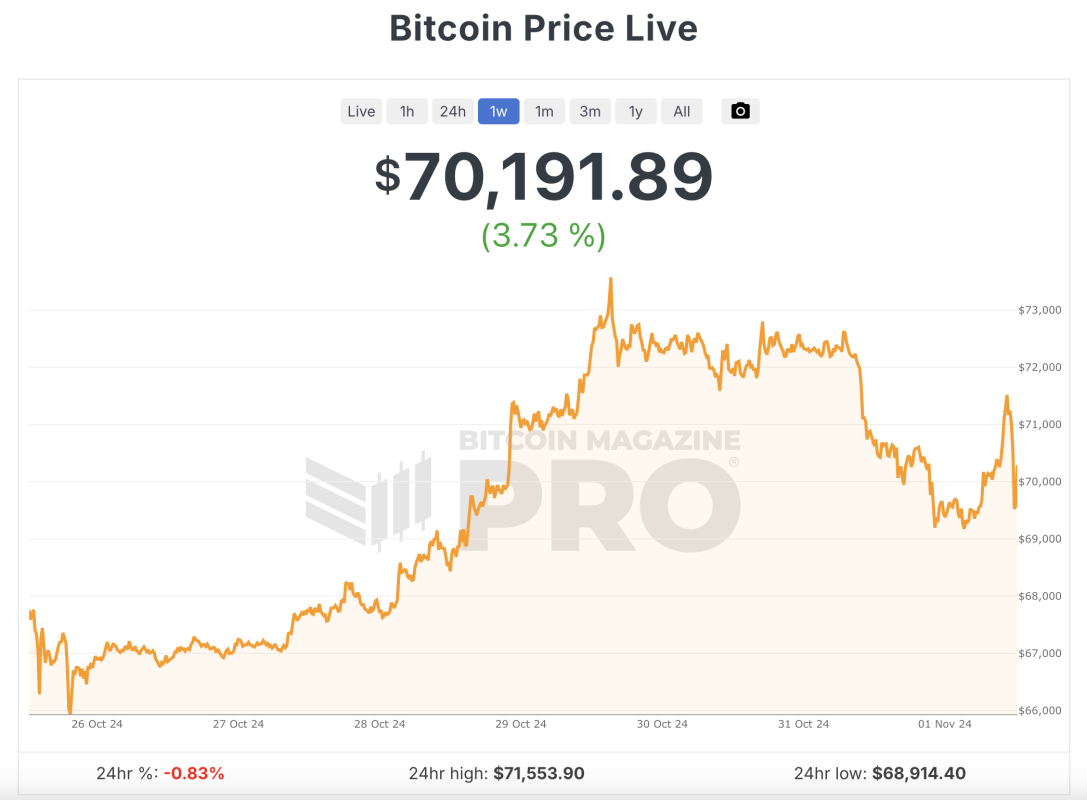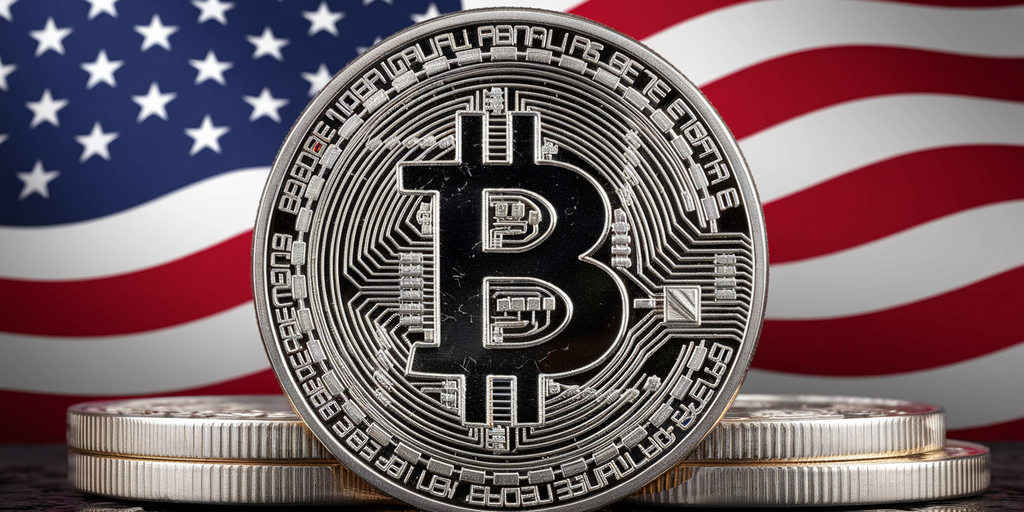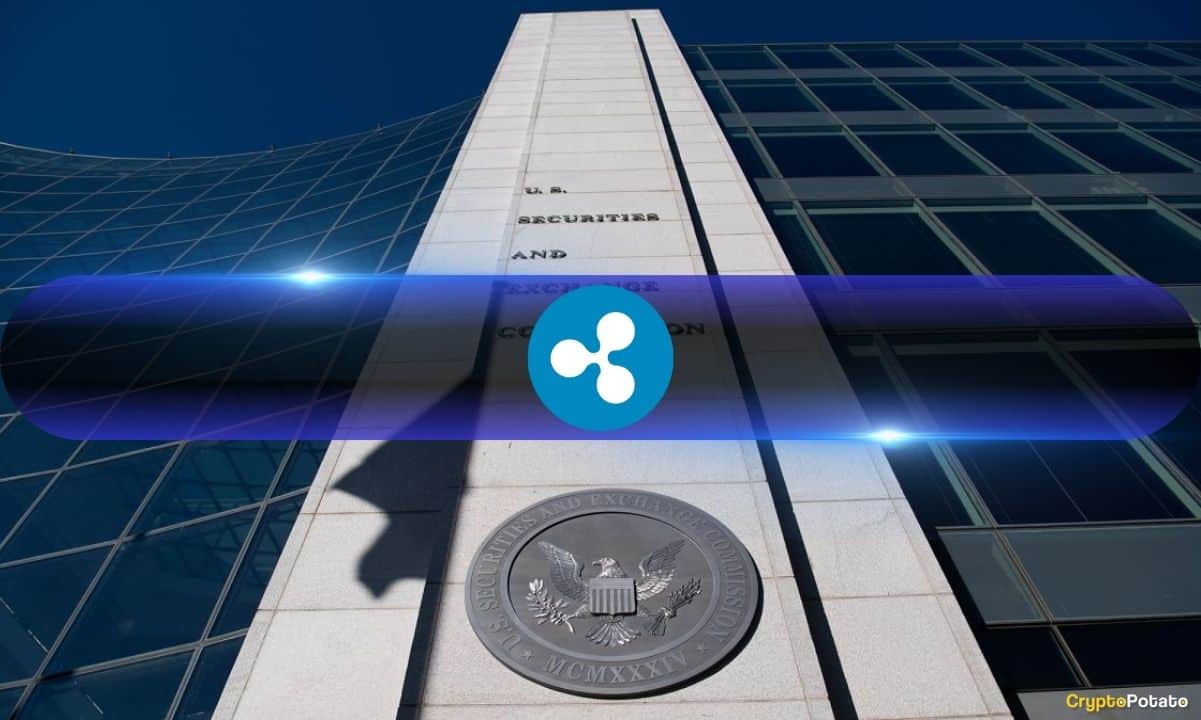Opinion by Georgii Verbitskii, founder of TYMIO Yield and TYMIO Protect.
The 2024 United States presidential election has raised debates about how both candidates might shape the future of cryptocurrencies, particularly Bitcoin (BTC).
With the growing number of Bitcoin and altcoin holders in the United States, any winner would make crypto regulation a key issue.
So, regardless of whether former President Donald Trump or Vice President Kamala Harris becomes the commander-in-chief, Bitcoin’s march toward $100,000 seems inevitable, driven by underlying factors that transcend the political landscape.
Trump vs. Harris: Election results and market sentiment
If Trump secures the presidency, many expect a Bitcoin rally. His bold promises, including the possibility of adding BTC to the US reserves and the attempt to promote the World Liberty Financial token (even despite its failure), have raised pro-crypto sentiment.
Trump’s administration would likely focus on reducing regulatory barriers to cryptocurrency innovations, positioning the US as a global hub for digital finance. This pro-crypto sentiment aligns with Trump’s broader economic policies that prioritize reducing governmental control over financial markets and encouraging innovation.
On the other hand, a Harris victory is predicted to trigger a more neutral response from the market. She does not make direct promises about crypto but works toward ensuring there is consumer protection and that financial crimes are prevented. Harris’ administration would probably still keep insisting on the right balance of protection against risks for users without deterring innovation.
Her supporters — progressives, most of all — are for clear regulations that allow the crypto market to be more transparent, hence permitting financial inclusion while reducing the risk of fraud and manipulation.
Yet, people would still wish to see crypto employed in ways that could empower underserved communities, but with caution due to overspeculation.
Regardless of the outcome, one thing remains clear: 2025 can be the year of more comprehensive and favorable crypto regulations. The trend toward transparent and pro-crypto regulatory frameworks cannot be denied — this will be a critical factor for Bitcoin’s future.
Bitcoin’s role as a hedge amid the unstable market
The primary factor that may drive BTC price up is not the election itself but rather the current instability in the global financial system.
The growing national debt, which has already surpassed $105,000 for every US citizen, and the increasing federal budget have created a fragile environment for traditional assets.
Recent: Harris win unlikely to rock Bitcoin price, but crypto fears persist, say observers
Bitcoin, with its decentralized and limited supply, is viewed as a hedge against these uncertainties. Investors are seeking refuge from inflationary pressures and potential financial instability, which is why they are turning to Bitcoin.
Regulatory clarity boosts growth
Another significant driver of Bitcoin’s growth is regulatory clarity, especially in decentralized finance.
While BTC has largely escaped prosecution from the Securities and Exchange Commission, which classifies it as a commodity, similar to gold or oil, the overall regulatory environment for decentralized finance (DeFi) and crypto at large remains uncertain.
With the government focusing on creating clearer industry frameworks, the anticipation of favorable laws could trigger a DeFi revolution.
Transparency would not only bring more confidence to investors but also unlock new levels of innovation and adoption in the crypto space, pushing the BTC price higher.
Decentralization and ETFs
Concerns about centralization have been raised as large entities like BlackRock and MicroStrategy have acquired substantial BTC holdings.
However, Bitcoin remains decentralized, mostly thanks to being driven by miners and the developer community.
The decentralized nature of Bitcoin’s infrastructure ensures that no one can control its network — that’s one of the reasons it still preserves its position as the number one cryptocurrency.
While BTC price can experience volatility if a major holder sells off a portion of their holdings, these events are temporary and cannot fundamentally change Bitcoin’s path to supremacy.
Furthermore, the approval of Bitcoin exchange-traded funds (ETF) marked a pivotal moment for the world of finance, bridging the gap between traditional finance and the crypto market.
Recent: Saylor’s Bitcoin custody debacle highlights growing divide in crypto community
Since the launch of spot Bitcoin ETFs, Bitcoin’s cost has stabilized, mostly staying above $58,000, which is significant given its previous volatility.
The introduction of Bitcoin-based financial products, such as ETFs, encourages institutional money to enter the market.
Bitcoin’s inherent value enables it to thrive in both positive and negative scenarios, no matter who becomes the next US president.
Despite regulatory changes or economic uncertainty, Bitcoin can benefit from the instability that plagues other markets. As favorable regulations loom and Bitcoin’s role as a hedge against financial instability becomes clearer, its price is becoming more and more likely to rise and reach $100,000.
Author’s bio: Georgii Verbitskii is the founder of crypto investor apps TYMIO Yield, a non-custodial DeFi structured protocol utilizing the concept of limit orders with yield, and TYMIO Protect to hedge risks. Both apps aim to make managing crypto assets more efficient and accessible to non-professionals.
This article is for general information purposes and is not intended to be and should not be taken as legal or investment advice. The views, thoughts, and opinions expressed here are the author’s alone and do not necessarily reflect or represent the views and opinions of Cointelegraph.

 2 hours ago
3
2 hours ago
3




:quality(85):upscale()/2024/10/31/831/n/49351773/b7bf33836723d2f0643c55.51137847_.jpg)


:quality(85):upscale()/2024/10/29/581/n/1922153/3f2adeb76720db8a0484f8.73093870_.jpg)
 English (US) ·
English (US) ·